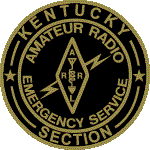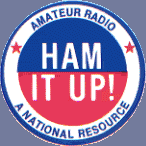|
Home
Amateur Exams
Commercial Exams
BVE Group
Links
Repeater Info
RF Safety
RADIATION PROBE
Skywarn Info
Title IV-Spam
UK Wildcat Page
About KN4S
Session Info



| |
FAYETTE
COUNTY SKYWARN PROCEDURES
Re-printed from November 1997 BARS QUA/HAMnews
Ron Ritchie/N4MOM,
ARES Assistant EC, Fayette County
Pat Spencer/KD4PWL,
ARES EC, Fayette County
To all amateurs who recently attended a skywarn class,
and those who have attended previous classes, we offer you a condensed
version of operating procedures in Fayette County. Those who have not
attended a Skywarn class are encouraged to do so, and to note these
operational precepts should you check into a weather net.
Fayette County frequencies in order of use:
146.760 Primary Repeater
147.165 Secondary Repeater
146.490 Emergency Simplex One
144.910 Emergency Simplex Two
Net Control Station (NCS):
Fayette County Skywarn operations will be conducted as station KF4BPY.
Net Activation:
Any amateur shall activate a Skywarn Net upon direction from the National
Weather Service (NWS), Fayette County ARES Coordinators, or if severe
weather conditions are present. Should an amateur other than ARES
coordinators start the net,
NCS shall appoint someone to notify them immediately of the situation.
NCS shall appoint another amateur to serve as Secondary NCS.
NCS shall relay reports meeting severe criteria to the NWS in Louisville
via amateur radio on 146.700 to station KF4EKR. If this is not possible,
contact the NWS via telephone at 1-800-292-5588.
Bringing Traffic Before the Net:
DO:
Check into the net, give your call, location, and any other information
requested by NCS. Then continue to observe your area.
Transmit ONLY AT THE DIRECTION OF NCS, or if you have a severe report.
Notify NCS if you are leaving the net or changing location.
NCS will check each station out after the net. This is for your protection.
We want to ensure everyone is safe after the net.
Be accurate, sure of what you are reporting, and short and to the point.
DON'T:
Report what you hear on commercial radio or TV. The NWS has already
received and issued a warning for that information.
Report conditions at your location unless they ARE severe, or more severe
than your last severe report.
Make LONG winded dissertations on the net. Be short and to the point as
other operators probably need to give their severe reports at the same
time.
Place yourself in danger, or forget to check out of the net.
Reporting Procedures:
It is important that all communications during a weather net be accurate,
precise, short and to the point. Remember there may be others needing to
bring important traffic to the net. Net Control needs the following
information, and will ask for additional information should they need it.
Example information will follow for your reference:
Your call and location: (This is KD4PWL at U.S. 60 and I-75)
What you see (saw): (I have a tornado on the ground)
When you saw it: (At this time)
Who saw it: (Use this ONLY if the info came from another source)
What it was doing: (Traveling northeast)
Personal Safety:
As a Skywarn Spotter, and/or ARES member, your primary duty is to protect
YOURSELF, HOME, and FAMILY. They come first without any argument.
Secondly, and equally important, NEVER place yourself in a position of
danger to gather information. We do not advocate sending people out to
"chase" a tornado. With the number of Hams in Fayette county,
almost everything can be seen from the safety of someone's home.
Back to Top | Back
to Main Page
|
 Bluegrass Volunteer Examiners
Bluegrass Volunteer Examiners
